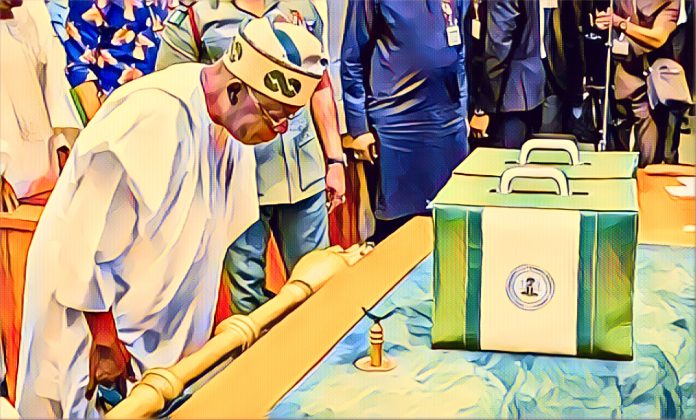KEY POINTS
- Tinubu loan request faces mixed reactions in the House of Representatives.
- Supporters highlight the need to fund critical infrastructure projects.
- Opponents warn of Nigeria’s rising debt and lack of transparency.
A showdown is brewing in Nigeria’s House of Representatives over President Bola Tinubu’s $2.2 million (N1.77 trillion) loan request. The request, aimed at addressing the N9.7 trillion budget deficit for 2024, has already been approved by the Senate but faces scrutiny from lawmakers in the Green Chamber. While ruling party representatives support the request, opposition lawmakers have expressed concerns about Nigeria’s rising debt and the potential impact of further borrowing on citizens.
Supporters argue for funding critical projects
Proponents of the loan request, including Deputy Spokesperson of the House, Philip Agbese, argue that the funds are essential for completing critical infrastructure projects. Speaking to The Punch, Agbese highlighted the government’s fiscal discipline, stating, “The Tinubu-led government has been prudent with our resources. We will approve the loan request without hesitation.” He added that the loan will be scrutinised to ensure compliance with legislative procedures and transparency.
Agbese also emphasised that the loan is aligned with the government’s broader economic recovery strategy, focusing on infrastructure development to stimulate the economy. He assured Nigerians that the funds would not be misappropriated, saying, “The House of Representatives will ensure that such monies, if approved, are not diverted.”
Opposition warns of growing debt burden
Members of the opposition, however, have raised alarms over Nigeria’s escalating debt profile. According to Labour Party lawmaker Afam Oghene, Nigeria’s public debt has surged to N87.38 trillion ($113.42 billion) as of June 30, 2024 (Debt Management Office). Oghene criticised the administration’s frequent reliance on loans, stating, “Many Nigerians are worried about the Presidency’s repeated requests for loan approvals, as well as the transparency and integrity of how the funds are being deployed.”
Kingsley Chinda, leader of the Minority Caucus, also voiced his concerns, calling borrowing a last resort. He questioned the government’s fiscal policies, asking, “What efforts have we made to raise funds without borrowing? What are the specific projects you intend to fund with the money? What are your repayment plans?” He stressed that borrowing without a clear repayment strategy could impose an additional burden on Nigerians.
Calls for transparency and responsible borrowing
As debates continue, lawmakers from both sides agree on the need for transparency and accountability. Bamidele Salam, Chairman of the Public Accounts Committee, stated that any loan approval must come with favourable terms and a commitment to funding essential infrastructure.
“Borrowing to fund critical capital projects is necessary,” Salam said. “But loans for recurrent expenditures would only worsen the economic situation.”
Similarly, opposition lawmakers urged the government to prioritise projects with measurable economic benefits. They emphasised the need for accountability to ensure that loans are channelled effectively, given the public’s growing scepticism about government spending.



